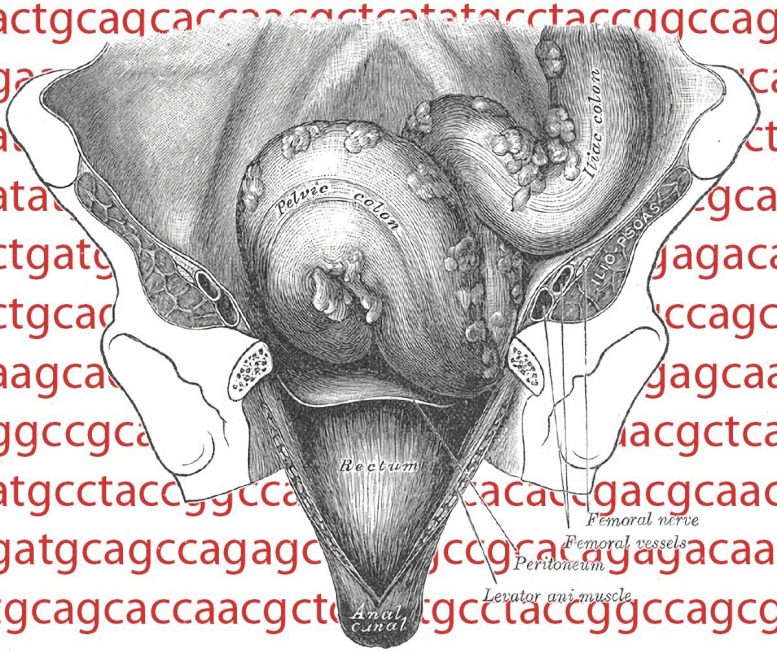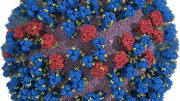A new genome-scale analysis to characterize somatic alterations in colorectal carcinoma is the largest analysis of its kind, involving more than 150 researchers at dozens of institutions and more than 270 tumor samples.
A comprehensive genomic analysis suggests that colon and rectal tumors constitute a single type of cancer and reveals previously unsuspected therapeutic targets for the second-leading cause of cancer deaths in the United States.
“Nobody has ever done analysis of this large a set of tumors,” said Raju Kucherlapati, Paul C. Cabot Professor of Genetics at Harvard Medical School and corresponding author of the study, published July 19 in the journal Nature. “The largest previous analysis involved fewer than 20 samples. This one has more than 250. As a result, we have really a much better understanding of this serious and widespread disease.”
The work involved more than 150 researchers at dozens of institutions, including HMS, brought together by the National Cancer Institute and the National Human Genome Research Institute in a national consortium, the Cancer Genome Atlas Network. The research analyzes 276 tumor samples, and presents new markers for aggressive tumors, along with uncovering an important role for the regulator gene MYC. The team also identifies copy number variations in two genes that could be potential drug targets.
“This finding of the true genetic nature of colon and rectal cancers is an important achievement in our quest to understand the foundations of this disease,” said Francis Collins, director of the National Institutes of Health. “The data and knowledge gained here have the potential to change the way we diagnose and treat certain cancers.”
The researchers analyzed multiple aspects of the tumor genomes, including their expressed genes, DNA copy number, promoter methylation and the expression of messenger RNA and microRNA.
In the analysis, 16 percent of the tumors have mutations in DNA repair genes so they are hypermutated—mutation is unusually frequent in these tumors and this can explain why they become resistant to treatment. The data reveal a remarkably consistent pattern of genomic alteration, and colon and rectal cancers have considerably similar patterns of genomic alteration, with 24 genes significantly mutated.
Recurrent copy-number alterations include amplifications of ERBB2 and newly discovered amplification of IGF2, which the authors suggest could be targets for new drugs that could treat colorectal cancer in a targeted way.
“The fact that we were able to find so many of these genetic changes that are targetable by a drug is really very exciting,” Kucherlapati said. “The most commonly used single therapy for these patients is chemotherapy, and it’s only moderately effective. These findings open a new range of targeted therapies.”
“While it may take years to translate this foundational genetic data on colorectal cancers into new therapeutic strategies and surveillance methods, this genetic information unquestionably will be the springboard for determining what will be useful clinically against colorectal cancers,” said Harold Varmus, NCI director.
The National Cancer Institute estimates that more than 143,000 people in the United States will be diagnosed with colorectal cancer and that 51,500 are likely to die from the disease in 2012. Colorectal cancer is the fourth most common cancer in men, after non-melanoma skin, prostate, and lung cancers. It is also the fourth most common cancer in women, after non-melanoma skin, breast, and lung cancers.
The Cancer Genome Atlas project plans to profile genomic changes in 20 cancer types and had published results on two kinds of cancer: glioblastoma in 2008 and ovarian cancer in 2011.
“It takes a critical group of researchers to conduct research at this scale and of this quality,” said Eric Green, NHGRI director. “This study is among the most comprehensive of its kind to date and vividly illustrates how TCGA data sets can shed new light on fundamental properties of human cancers.”
Reference: “Comprehensive molecular characterization of human colon and rectal cancer” by The Cancer Genome Atlas Network, 18 July 2012, Nature.
DOI: 10.1038/nature11252










Be the first to comment on "Genomic Analysis of Colon Cancer Reveals New Potential Drug Targets"